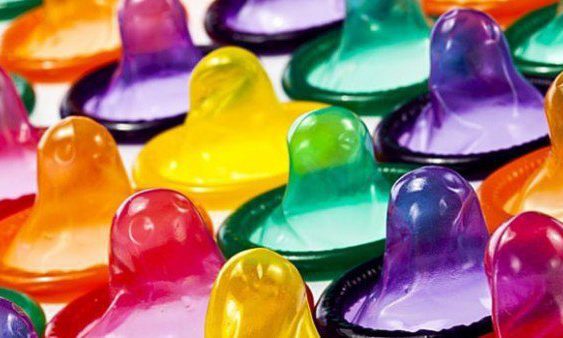- Governor Sanwo-Olu flags off Ojota-Opebi Link Bridge, to be completed in 20 months
- Allow Nigeria go to 2022 World Cup, don’t play qualifiers – Ghana Parliament member tells Black Stars
- There was no second sex tape, Kim Kardashian refutes Kanye West’s claims
- Jaruma Remanded In Prison Over Post On Regina Daniels And Ned Nwoko
- Lanre Gentry confirms paternity of last son with Mercy Aigbe, says ‘He’s my son’ (Photo)
Don’t wash and reuse condoms and dental dams

Don’t skip the washing and just reuse them, either.
These might feel like obvious bits of advice, but they’re necessary to state – there are people washing and reusing condoms and dental dams, entirely unaware that this is a very, very bad idea. The CDC recently tweeted about the issue, writing: ‘We say it because people do it: Don’t wash or reuse #condoms! Use a fresh one for each #sex act.’
To which people responded with shock that anyone would wash and reuse a condom, along with a bunch of jokes about turning condoms inside out (don’t do that either). But the CDC know what they’re on about. There definitely are people who reckon that instead of using a fresh condom they can just rinse out a used one and go at it again.
There’s no recent data on how many people are reusing protection, but a 2012 study published in Sexual Health found that between 1.4% to 3.3% of respondents had reused a condom at least twice.
The real stats may be more concerning, as that study relied on self-reporting. It’s not clear how many people are quietly reusing condoms, having never been told that it’s not a good move.
So, we repeat, in the hopes that someone who needs this information will see it: Do not reuse a condom or dental dam. When you reuse a condom or dental dam you significantly reduce its effectiveness at protecting you and your sexual partner from sexual infections and pregnancy.
That’s down to a few reasons, including the spread of bacteria and the risk of tears. ‘Condoms are designed to be used once and disposed of,’ Bekki Burbidge, deputy chief executive at sexual health charity FPA, explains to Metro.co.uk. ‘Condoms that have already been used will be weaker and more likely to tear, split or leak.
‘Washing a condom won’t necessarily remove all traces of bacteria, body fluids or other things that might lead to an infection. And some cleaning products could damage the condom and may also irritate your genitals and put you at risk of infection.
‘External condoms are designed to be unrolled down the penis quickly and easily. Once a condom is unrolled, it’s going to be a lot more difficult to get it back on the penis and could damage to the condom in the process.’
Dental dams may not tear as easily, but licking them, washing them, then reusing them means you’re putting a cocktail of bacteria in contact with your mouth and genitals, which could cause irritation, and, again, increase your risk of infection.
‘Condoms and dams should never be used more than once, for any reason,’ says Bekki. ‘Reusing condoms and dams increases the risk of sexually transmitted infections and makes condoms less effective in protecting against pregnancy.
Always use a new condom every time you have sex. It’s also important to use a new condom for each new sex act, for example, if you switch from vaginal sex to anal sex.’
Thanks to the lack of data on the area, we don’t know for sure why people are reusing condoms – whether it’s down to a lack of information or a choice to take the risk to avoid buying more protection. Some people may be worried about the cost of condoms and could be reusing them to avoid the need to buy more. Perhaps people think it’s embarrassing to buy condoms and dental dams so might be avoiding the purchase. One thing that’s worth noting in both cases: It’s super easy to get free condoms.
Money should never be prohibitive to your sexual health, and if you’re worried about cost it’s a much better choice to head to a sexual health clinic for freebies rather than putting yourself at risk. ‘If you’re on a tight budget, there are lots of places to get free condoms, so you don’t have to put your health at risk,’ explains Bekki.
‘In most areas, people under 25 can join a local C-Card scheme to access free condoms, and many contraception and sexual health clinics, genitourinary medicine (GUM) clinics, and some general practices will also provide free condoms to people of all ages.’
Simple, right? So there’s really no excuse. Use condoms and dental dams, throw them away when you’re done, and always use fresh protection for a new sex session or when you’re switching between oral, anal, or vaginal sex.